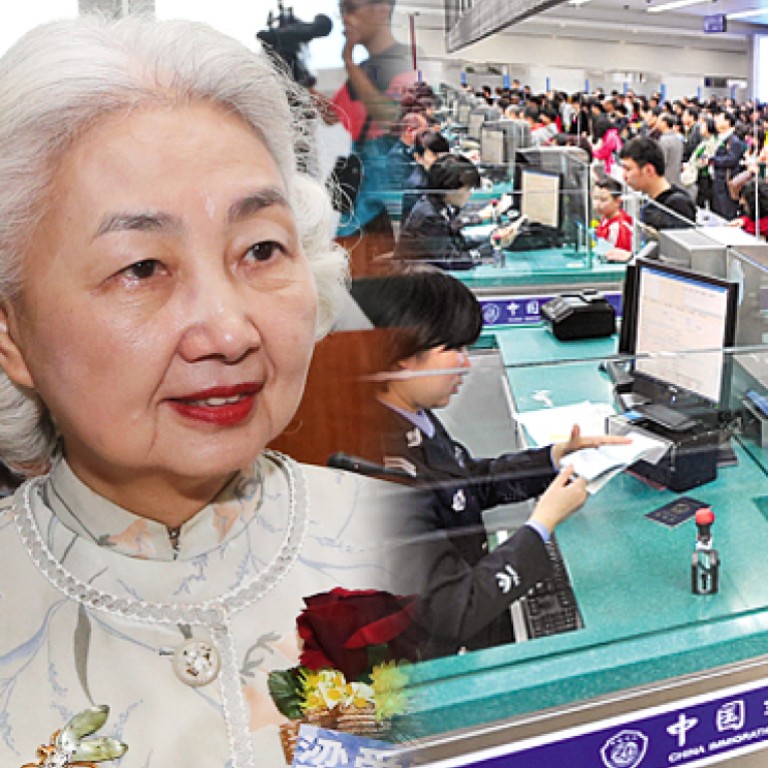
Elsie Leung says precedent allows for mainland China border checkpoint in Hong Kong rail terminus
Elsie Leung says there is no need for controversy over immigration controls
Hong Kong can allow a mainland immigration checkpoint at the high-speed rail terminus in West Kowloon by following an established precedent, an expert on the city's mini-constitution said.
Elsie Leung Oi-sie, vice-chairwoman of the Basic Law Committee, pointed to the example of the Shekou checkpoint on the Hong Kong-Shenzhen Western Corridor, where a joint immigration checkpoint operates on mainland soil.
She was speaking after lawmaker Michael Tien Puk-sun warned that Hongkongers travelling on the future high-speed link to Shenzhen and Guangzhou may have to disembark for immigration checks. Tien, also a deputy to the National People's Congress, had suggested amending an annex of the Basic Law to prevent any legal challenge to the creation of a mainland border control point in the heart of Kowloon.
Leung said the creation of the Shekou checkpoint had been facilitated by a ruling of the NPC Standing Committee in 2006, allowing Hong Kong to exercise jurisdiction over its part of the site.
"It's a matter of subjective judgment whether the controversy is a major or minor one," Leung said. "I believe there would be a way out if the matter is related to the well-being of people of on both sides."
But transport minister Professor Anthony Cheung Bing-leung declined to comment on reports the Hong Kong government was considering attempting to resolve the question by asking the Standing Committee to add a national law to Annex III of the Basic Law.
He said talks were continuing with Beijing over the creation of the joint checkpoint, adding: "I would not comment on the speculation … because we are still considering various methods."
Using Annex III would be controversial, because the Basic Law states that matters covered by the annex "shall be confined to those relating to defence and foreign affairs as well as other matters outside the limits of the autonomy" of the Hong Kong SAR.
Eric Cheung Tat-ming, a legal scholar at the University of Hong Kong, feared that adding a national law unrelated to defence or foreign affairs to Annex III would do "irreparable damage" to the city's rule of law and judicial independence. It would effectively allow the Standing Committee to reinterpret the Basic Law, he said.
The immigration row is the latest debacle to hit the high-speed rail project.
The line's opening has already been delayed from this year until at least 2017, and the budget has mushroomed far beyond the original HK$65 billion and is expected to grow further.
